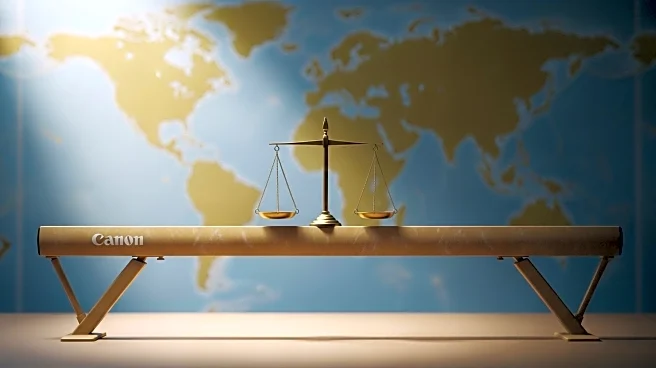What's Happening?
The Court of Arbitration for Sport (CAS) has rejected appeals from the Israel Gymnastics Federation regarding participation in the upcoming world championships in Indonesia. The appeals sought to compel the International Gymnastics Federation (FIG) to ensure Israel's participation or relocate the event. Indonesia's government has refused to grant visas to Israeli gymnasts, citing opposition within the country. Despite assurances from Indonesian officials earlier this year, Israel's participation is now in doubt, affecting athletes like Olympic gold medalist Artem Dolgopyat.
Why It's Important?
The decision by CAS and Indonesia's refusal to issue visas to Israeli athletes highlights ongoing geopolitical tensions and their impact on international sports. This situation underscores the challenges faced by athletes from countries with contentious political relationships, affecting their ability to compete on the global stage. The incident may prompt discussions within sports governing bodies about policies regarding host countries and their obligations to ensure fair participation. The broader implications could influence future event planning and the selection of host nations for international competitions.
Beyond the Headlines
The refusal to grant visas to Israeli athletes reflects deeper political and cultural issues, particularly Indonesia's support for Palestinians. This case exemplifies how international sports can become arenas for political expression and conflict. The situation raises ethical questions about the role of sports in promoting inclusivity and peace, challenging organizations like FIG to balance political realities with their commitment to fair competition. Long-term, this incident may influence how sports federations address similar issues, potentially leading to policy changes regarding host country requirements.









